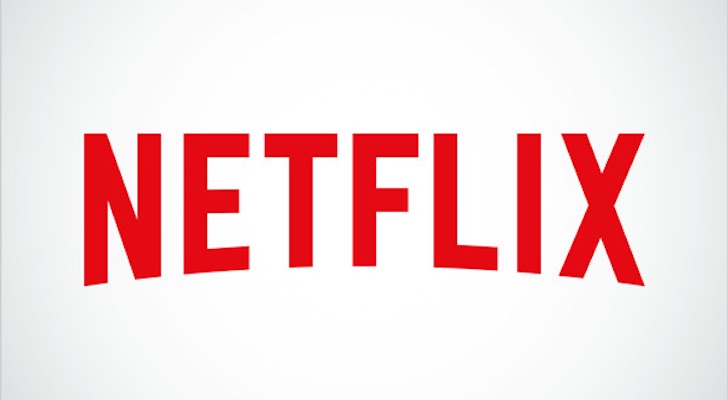Credit has to be given where it’s due: everything Goldman Sachs analyst Heath Terry said earlier this week about Netflix (NASDAQ:NFLX) is true. Netflix stock may well reach his price target of $470 before all is said and done. It’s certainly got enough momentum to get there.
There was something conspicuously missing from Terry’s bullish thesis though. That is, not once did the matter of actual profits become part of the equation.
Maybe it just doesn’t matter. It certainly hasn’t mattered yet. While Netflix is the undisputed king of streaming and NFLX stock is up nearly 300% in just the past two years, profits remain minimal. Cash flow, on a GAAP basis, remains negative. Investors just don’t care though, eyeing the “what could be” down the road.
Nevertheless, there will come a time when those pesky profit expectations will matter to Netflix stock holders.
The irony? Netflix is trying to make a buck the most difficult way possible.
Profit, Loss and Netflix Stock
Those who know the Netflix story well will know it’s shifted away from paying for content produced by others and put more focus on (and more money into) creating its own content. The presumption is that this approach will ultimately lower the company’s per-user content costs.
It’s not clear how well the tactic has worked. While Netflix added a little more than five million subscribers in the second quarter of the year, more or less in line with prior growth rates, those additions have required the company to budget a whopping $13 billion for home-grown programming just in 2018.
That’s a lot for a company that’s only generated $13.9 billion worth of revenue over the past twelve months.
CEO Reed Hastings, along with fans and owners of Netflix stock, argues that such outlays are required now for more subscribers later. Maybe they’re right.
After being in the streaming business for over a decade though, it’s just as possible that merely selling direct-to-consumer access to a library of you own original video content isn’t the most profitable way of being in the entertainment business.
Netflix Stock and the Competition
Admittedly, Netflix pioneered the idea of streaming, and deserves its place at the top of the pile. Others have tried to mirror or mimic its success with varied results.
Take a closer look at all the other competition though, ranging from Amazon.com (NASDAQ:AMZN) to CBS (NYSE:CBS
) to Walt Disney (NYSE:DIS), just to name a few. All of them offer streaming video services, and all of them create at least some of their own content. But, none of them are creating their own television shows and movies just to sell to streaming customers.
That’s because the real money in the media and entertainment business isn’t in streaming. It’s selling or using that content in other, more fruitful ways.
Take Walt Disney for instance. It’s willing to lease the rights to select Star Wars movies to Netflix. It’s proverbial big score with movies, however, is at the box office where fans are willing to pay big bucks for first-run feature films. “Star Wars: The Last Jedi,“ turned a net profit in excess of $400 million.
Amazon’s modest-but-respectable library of originals isn’t meant to encourage paid memberships to its Prime service. It’s meant to turn consumers into Prime subscribers because Prime members spend considerably more at Amazon.com than non-Prime shoppers do. On average, Prime members spend roughly $1,300 per year at Amazon, almost doubling the $700 non-Prime shoppers spend.
Ultimately, CBS isn’t selling content, but selling advertising revenue opportunities to cable television service providers which is a much more lucrative deal.
On a dollar-for-dollar basis, selling access to an ad-free, home-grown library of video content may be the least effective means of generating revenue and profits in the entertainment business. There’s a reason nobody else is quite as one-dimensional with their content as Netflix is.
Breaking in Isn’t Easy
For the record, Netflix has run some films in theaters before. Mudbound and Okja are a couple of them, though both were very limited in terms of reach. That’s starting to change though, a little. Its film “22 July” will open on Oct. 10 in about 100 theaters around the world, making it the company’s biggest silver-screen play yet.
It’s still a relatively small foray into a feature film industry that could be worth $50 billion by 2020, however.
Sure, Netflix could continue to ramp up its presence in theaters, which could be a more profitable venture than streaming. At that point though, it not only competes with itself, but also is likely to find a less-than-warm reception from a tightly-controlled film industry.
As it turns out, the familiar Hollywood players and distributors aren’t particularly fond of Netflix’s content and double-barreled approach.
Netflix could choose to make fewer movies, but higher quality flicks. And, maybe it could serve up some television programming that’s a bit friendlier to the time and language constraints of cable TV.
Again though, every show or film available somewhere other than directly from Netflix makes the service a little less unique. Never even mind the fact that the last thing cable providers really want to do is feed the beast that’s fueling the cord-cutting movement.
In simplest terms, Netflix has trapped itself between a rock and a hard place.
Bottom Line for Netflix Stock
Netflix has been a fascinating and successful experiment. Streaming video and even content-creation itself have become commodities though. The trick from here is leveraging both to sell something else, but Netflix isn’t selling anything else. As investors increasingly figure out the model is flawed, profit-wise, Netflix stock will face growing resistance.
Maybe Heath Terry is right about too many analysts underestimating the company’s growth potential, but too few analysts fully appreciate how limited its direct-to-consumer arrangement is.
As of this writing, James Brumley did not hold a position in any of the aforementioned securities. You can follow him on Twitter, at @jbrumley.

